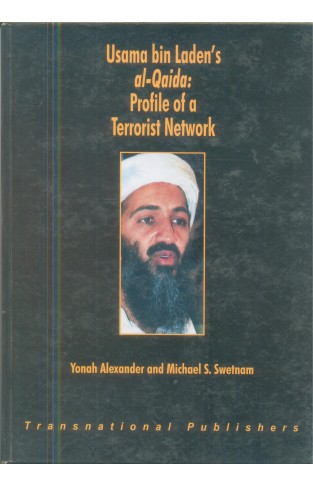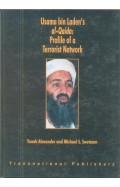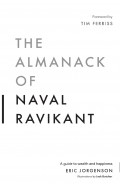LFO A-Fraud on the Constitution
By: Mian Raza Rabbani
-
Rs 2,000.00
Due to constant currency fluctuation, prices are subject to change with or without notice.
We're offering a high
discount on this book as it is slightly damaged
Book: This book in an attempt to show in the historic perspective that when systems, constitutions and institutions are tailored to suite individuals, they never survive. It is an attempt to show the manner in which the LFO has changed the basic structure of the Constitution of 1973 from federal, parliamentary and democratic onto a quasi-presidential form of government, dominated by extra parliamentary forces.
While tracing the derailment of the democratic process several times during Pakistan’s 55 years’ existence, it tries to highlight how the military and civil bureaucracy has neglected and played with civil society. The author has underlined the fact that undemocratic and unconstitutional interventions enjoyed support of Western countries.
The subject matter of the book is, “the people’s struggle for the parliamentary democracy, federalism, independence of the judiciary, provincial autonomy, economic, political, cultural and fundamental rights. The right of equality before law and the right to the masters of their own destiny. The struggle has met resistance, in the change world circumstances it has become more complex as direct concern of national security and economic interest of foreign powers have become more pronounced. It is theis context that the LFO and the adamancy of denying Parliamentary scrutiny to it, has to be viewed.”
The author believes that one of the many reasons for not bringing the LFO on the floor of Parliament is that under the umbrella of Article 270 AA the economic reforms of the regime have been given protection within were introduced due to the international donors.
The recent past has seen an unfolding of events that has shaken the edifice of Pakistani politics. In the first instance the political creations of the of the establishment seeking more power than the himself, the tussle that ensued exposed and shook the foundations of many an institution. This ruffling was yet not settled that the international scenario forced the establishment to outwardly disconnect with their old political and ideological allies-the religious right.
The title of the book is an adoption from the legal term “a fraud on the statue.”
The purpose of this book is not to shift the blame or responsibility on any one or other stakeholder but to arrive at a correct synthesis to build anew, which is possible wheneach individual and institution in the power equation of Pakistan admits in the public its part in the “betrayal” of the will of the people.
We're offering a high
discount on this book as it is slightly damaged
Book: This book in an attempt to show in the historic perspective that when systems, constitutions and institutions are tailored to suite individuals, they never survive. It is an attempt to show the manner in which the LFO has changed the basic structure of the Constitution of 1973 from federal, parliamentary and democratic onto a quasi-presidential form of government, dominated by extra parliamentary forces.
While tracing the derailment of the democratic process several times during Pakistan’s 55 years’ existence, it tries to highlight how the military and civil bureaucracy has neglected and played with civil society. The author has underlined the fact that undemocratic and unconstitutional interventions enjoyed support of Western countries.
The subject matter of the book is, “the people’s struggle for the parliamentary democracy, federalism, independence of the judiciary, provincial autonomy, economic, political, cultural and fundamental rights. The right of equality before law and the right to the masters of their own destiny. The struggle has met resistance, in the change world circumstances it has become more complex as direct concern of national security and economic interest of foreign powers have become more pronounced. It is theis context that the LFO and the adamancy of denying Parliamentary scrutiny to it, has to be viewed.”
The author believes that one of the many reasons for not bringing the LFO on the floor of Parliament is that under the umbrella of Article 270 AA the economic reforms of the regime have been given protection within were introduced due to the international donors.
The recent past has seen an unfolding of events that has shaken the edifice of Pakistani politics. In the first instance the political creations of the of the establishment seeking more power than the himself, the tussle that ensued exposed and shook the foundations of many an institution. This ruffling was yet not settled that the international scenario forced the establishment to outwardly disconnect with their old political and ideological allies-the religious right.
The title of the book is an adoption from the legal term “a fraud on the statue.”
The purpose of this book is not to shift the blame or responsibility on any one or other stakeholder but to arrive at a correct synthesis to build anew, which is possible wheneach individual and institution in the power equation of Pakistan admits in the public its part in the “betrayal” of the will of the people.
Zubin Mehta: A Musical Journey (An Authorized Biography)
By: VOID - Bakhtiar K. Dadabhoy
Rs 630.00 Rs 1,050.00 Ex Tax :Rs 630.00
Aiming High - Masayoshi Son, SoftBank, and Disrupting Silicon Valley
By: Atsuo Inoue
Rs 2,166.50 Rs 3,095.00 Ex Tax :Rs 2,166.50
Myths Illusions and Peace: Finding a New Direction for America in the Middle East
By: Dennis Ross
Rs 1,095.00 Ex Tax :Rs 1,095.00
The Origins of Political Order From Prehuman Times to the French RevolutioN
By: Francis Fukuyama
Rs 3,895.00 Ex Tax :Rs 3,895.00
Manning Up: How the Rise of Women Has Turned Men into Boys
By: Kay Hymowitz
Rs 796.00 Rs 995.00 Ex Tax :Rs 796.00
The Obama Syndrome: Surrender At Home War Abroad
By: Tariq Ali
Rs 777.00 Rs 1,295.00 Ex Tax :Rs 777.00
The Quest For Meaning: Developing A Philosophy Of Pluralism
By: Tariq Ramadan
Rs 837.00 Rs 1,395.00 Ex Tax :Rs 837.00
Aiming High - Masayoshi Son, SoftBank, and Disrupting Silicon Valley
By: Atsuo Inoue
Rs 2,166.50 Rs 3,095.00 Ex Tax :Rs 2,166.50
No recently viewed books available at the moment.
Zubin Mehta: A Musical Journey (An Authorized Biography)
By: VOID - Bakhtiar K. Dadabhoy
Rs 630.00 Rs 1,050.00 Ex Tax :Rs 630.00
Aiming High - Masayoshi Son, SoftBank, and Disrupting Silicon Valley
By: Atsuo Inoue
Rs 2,166.50 Rs 3,095.00 Ex Tax :Rs 2,166.50
















-120x187.jpg?q6)











-120x187.jpg?q6)





